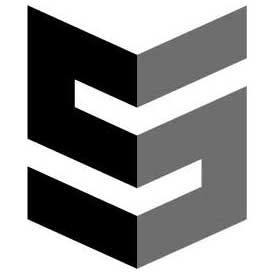As new technology graces the scene, the first question on most people’s minds is, “Is this a fad?” Businesses, especially, want the answer to this question before they consider investing in it. Business technology has had a lot of tech trends come and go as of late, but there are a few that are absolutely here to stay. Artificial Intelligence (AI), the Internet of Things (IoT), and blockchain may be in a constant state of flux, but all-in-all, they’re not going anywhere.
Artificial Intelligence (AI)
AI currently lacks a consistent definition. By one definition, AI is a regular part of human life, such as with voice-activated assistants. When defining as “matching human cognition,” then it is still a theory.
AI definitions now include what were once referred to as business intelligence. Parts of the processes that make up AI are helping businesses today, such as Robotic Process Automation and Cognitive Automation. Both are parts of the AI puzzle that can streamlining business processes.
Robotic Process Automation doesn’t mean literal robots handling tasks, but computers performing rules-based processes on structured data. For example, a telecom company was able to automate 35% of their back office work. Now, they process over a million records per month, with a return on investment of 650 to 800% over three years. A utility managed to automate 5% of their back office handling, processing three million transactions, with a 200% ROI in the first year. This is what RPA can do.
Meanwhile, Cognitive Automation (CA) can work with unstructured data, attempting to find patterns and outliers. One example is Natural Language Processing. Virgin Trains uses a CA tool to read incoming email and sort it into 470 different categories. This streamlined the customer support experience, allowing human staff to provide responses that are faster and more personal.
Internet of Things (IoT)
The Internet of Things is here to stay, as millions of IoT products and services are on the market and in use daily. We use the IoT daily in our personal lives, and it’s becoming standard in business practices as well. In manufacturing, we expect to know at all times how much inventory is in stock, the status of said inventory, and where orders are in terms of processing and shipment. We don’t want to have to call Alice down in shipping to see where something is; we want to see it straight from our desktops and phones as soon an order is scanned. We want to be able to see straight from mobile devices the ink levels in our printers, whether a machine part needs to be replaced, and so on and so forth.
If anything, our demand and reliance upon IoT will only increase over time.
Blockchain
Blockchain is the common name for Distributed Ledger Technology (DLT). The latest research pegs blockchain on the downward side of the Hype Cycle, just about to enter the trough of disillusionment. However, business startups regarding blockchain are on the rise, and investors appear ready to connect. At a recent conference, we learned of a pair of fund managers who have such a blockchain startup with three live-use cases. They track the provenance of cobalt from three different mines in the Congo to the battery manufacturers around the world. As a result of their blockchain, they can assure the consumer whether the cobalt is conflict-free, what mine it came from, and where it was every step of the way.
All of these technologies are in constant flux, and the coming months and years are bound to show further advances in AI and IoT. As for blockchain, its future will become clearer if startups, investors, and vendors continue to show interest in it. The technology is there, and the practical applications for businesses are there. Blockchain is teetering on that edge of being a fad, but if the startup trend continues, it will swing greatly in the other direction.
Interested in exploring what this might look like at your organization? Contact Sikich to help you come up with a strategic plan.





